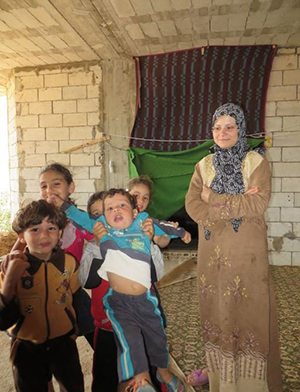The Economic Impact of Taking in More Refugees Displaced by the Syrian War
Since President Trump signed the executive order banning citizens from 7 Muslim majority country, thousands of Americans protested at the airport. For 6 of these countries, they have a 90-120 day ban, while those coming from Syria are banned indefinitely.
This order is the exact opposite of what the Obama administration has done. The former government was more compassionate about the plight of those who were displaced by the Syrian war. Since the civil war erupted in Syria in 2011, more than 7 million Syrians have been displaced. They fled the country despite the risk that comes with it. Staying is even worse. Over 200,000 people have been killed since the war started with over half a million more who were injured. Most of Syria has now been turned into ruble.
Most of these refugees suddenly became the burden of nearby countries like Jordan, Iraq, Lebanon and Turkey. The EU is still trying to argue on whether or not they will take in more refugees. Countries like Germany are willing to expand their numbers, while others like Hungary have started building fences to prevent refugees from illegally entering the border.
The economic perspective
Trump’s argument on banning these refugees was more on securing the country. He said that up until the government has determined what was going on, the ban will remain. This does not make sense though considering that not a single Syrian refugee has done a terroristic attack in US soil since the country started taking in more refugees.
If he argued in an economic perspective, perhaps it would have made more sense. In a 2014 study, it was revealed that sine Jordan took in thousands of refugees; the government has spent over $8.2 billion. The economic benefits they got from these refugees the moment they started being employed was $5.8 billion. In short, the government has lot over $2 billion in the process and has affected the country’s limited water supply.
This is not true in all cases though. In Cleveland, Ohio for instance, local refugee service agencies have spent around $4.8 million since they have started accepting refugees in 2012. However, when the economic impact of the refugees was weighed in, it reached up to $48 million. This is 10 times the amount the government has initially spent.
The reason behind this is that a lot of these refugees are skilled workers back in their home countries. They have the ability to work and contribute to the economy. Some of them even had successful business ventures back home. Once they started working, they will have purchasing power. Their increased number also means increased demand for goods and services. They can help revitalize a dying economy. Another study conducted about the impact of refugees on the economy revealed that through the years, their contributions became more significant. In the 1980’s, refugees worked at least 14% less than economic migrants while from 2000 onwards, they are working 20% more.
The moral thing to do
There might be different studies in regards to the impact of refugees in the economy. One thing is for sure though; the moral action must be to take them in. These people didn’t choose to be in that situation. They were just fleeing to protect their families and stay alive. Countries were most of these refugees came from would not have even been in that situation if not for the actions of the West. Therefore, there is really no reason to turn them away especially if they have been properly vetted.
Photo Attribution:
Featured and 1st image by DFID – UK Department for International Development [CC BY 2.0 (http://creativecommons.org/licenses/by/2.0)], via Wikimedia Commons
2nd image by H. Murdock, VOA [Public domain], via Wikimedia Commons


